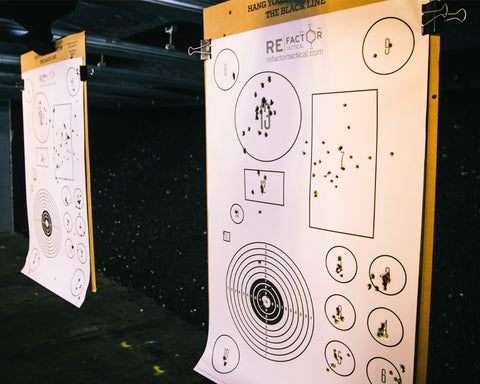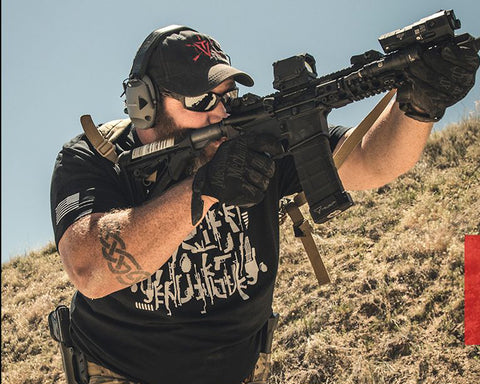What You Need To Know
- ✔ You don't have to make a down payment, but it will save you money on your VA loan
- ✔ Not all sellers will agree to this, but having the seller pay your closing costs will save you a lot of money
- ✔ Refinancing is a great way to save, and the VA won't let you do so unless it makes financial sense
We’ve been talking a lot lately about VA loans, and comparing them to other major home loans. Depending on what you’re looking for, how your finances are, what your credit score looks like, and simply where you’re at in life, some loans may be better than others. Another option, we haven’t gone into a lot of detail about is the FHA loan. The FHA loan might be the closest thing you can get to a VA loan, without it actually being a VA loan, and before you say, “I make too much money for an FHA loan,” no you don’t. Now that we’re past that rumor, here’s our in-depth look at the VA vs FHA loan.
What is an FHA loan?
Much like the VA loan, lenders are typically more inclined to take you on as a client because they know you’re backed by the VA. An FHA loan is similar in that you’re backed by a national bank. Therefore, lenders feel more comfortable providing you the home loan you need. Their risk is lowered by the backing, so why not.
Contrary to popular belief, you don’t have to be in a certain income bracket to qualify for an FHA loan. Again, it’s a lot like the VA loan. In fact, it’s probably the civilian version of the VA. Only, there are a few things that make it different. Some for better, others for worse.
FHA Loan Pros
- You can make a down payment as low as 3.5%
- Can get a loan with a credit score as low as 580
- Home Improvement Loan or Rehab loan is easier to get than through the VA
FHA Loan Cons
- You’re required to pay 1.75% upfront in mortgage insurance premiums (MIP)
- If you purchased your home after July 3, 2013, you’ll have to refinance to a conventional loan to get rid of your MIP
- More fees than a VA Loan
VA Loan Pros
- There’s typically no down-payment required
- There isn’t a MIP
- There are fewer fees than with an FHA
- The VA has higher loan limits than the FHA(as of 2019)
VA Loan Cons
- Getting a home improvement loan is a more difficult process with the VA
FHA Loan Limits
Ah, you thought by not going through the VA there wouldn’t be any loan limits. We’re sorry to be the ones to break this to you, but the FHA does, in fact, have loan limits. Similar to the VA, your loan limit will depend on the county you live in. The downside you’ll find with the FHA vs. VA loan is where the loan limit sits. The VA actually has higher loan limits—not by a huge amount, but maybe enough to make a difference in purchasing a home through a VA loan vs. an FHA loan.
The limit you’ll find through the FHA is between $314,827 where the cost of living is lower and $726,525 where the cost of living is at its highest. The VA, on the other hand, goes with the same loan limit as the FHFA, with a minimum loan limit of $484,350 and the same maximum loan limit of $726,525 (current as of 2019).
FHA Loan Calculator
Finding an FHA loan calculator online isn’t really that difficult. You probably don’t need us to tell you that. But, in case you need a little advice, here’s what we can offer.
There are several online sources that will give you an estimated payment plan—keep in mind, these are all estimates—but the one we found that gives you the opportunity to list the most details and doesn’t ask for all your personal information is here.
FHA Connection
FHA Connection probably isn’t for you—but in case it is, here you go. Also, a lot of people seem to be asking about it, so we figure we’ll go ahead and cover it.
FHA Connection is an online program meant for FHA approved lenders and HUD-approved partners. Basically, to make a long story short, since this won’t apply to most people reading this, FHA Connection helps your loan process move. Your approved lender will use the system to make sure the loan processes gets completed and you find yourself living in your new home as soon as possible.
VA Approved Condos
Getting approval for a condominium with a VA loan is pretty easy, at least that’s what they tell us. However, it wouldn’t be the VA we’ve come to know if it didn’t come with a list of qualifications first.
Besides being on the VA’s list of approved condos, the following must be in place before the VA will consider approving a unit in the condo you’re looking to purchase.
- At least 50% of the units must be occupied
- Less than 15% of the unit owners are behind on HOA dues—yes there will be a homeowners association
- At least 75% of the units must be sold—can not have a lot of newly built condos
Other non-approved condos include those which have never been submitted for a VA approval—this is done by the community’s HOA, it is not something you can do—any condos not grandfathered in under a previous HUD, or any condos who were submitted for VA approval but denied.
FHA Approved Condos
Before you get too excited over there, getting an FHA loan for a condominium is almost exactly the same as if you did it through a VA loan. The major difference is in the approval process. Unlike the VA, which requires the HOA to file a request for approval, you can file your own request with the help of your realtor to get it on the FHA approved condominium list.
To save yourself a little trouble, if the above is the route you plan to take, here’s a short list of what qualifies a condominium.
- There must be no more than 49% non-residential area (this is referring to open space, non-living areas, not unoccupied units).
- Must comply with state law
- Must be primarily residential (at least 51%)
- Must contain—at a minimum—two units
Here’s what doesn’t qualify
- Condominiums that have more than 49% non-residential living space
- Condo hotels
- Timeshares—sorry about that
- Houseboats—there went your dream of living at sea (at least with an FHA loan)
- Any condo with more than one dwelling in an individual unit
Now, let’s say you aren’t looking to go through all that trouble. Maybe you’d much rather shop only for units already on the approved list, you can go here and look them up—yes, it’s that easy.
HUD Approval
Since we mentioned previously, HUD approval earlier, let’s take a moment to explain what we mean by this. Before 2009, the VA did not review every condo application the same. In fact, if a condo was approved for an FHA loan, then it was automatically given approval from the VA. Unfortunately, the VA does not operate like this anymore. Fortunately, any condos before 2009 that fell into this category are grandfathered onto the VA’s approval list.
Frequently Asked Questions: FHA Loans
A lot of people are going to the Internet and asking the below questions. So, being the awesome people that we are, we’re going to cover them.
What does FHA stand for?
If you haven’t already figured it out, FHA stands for the Federal Housing Authority.
What won’t pass FHA inspection?
Okay, if you’re looking to purchase a home without all the fine print, an FHA loan, exactly like a VA loan, isn’t for you. For instance, let’s say you want to buy a home from the 1930s with significant foundation problems. You won’t go with a VA loan, because chances of them approving it without having it fixed first are pretty slim. Well guess what, an FHA loan is no different. Your FHA appraiser is going to be looking for the same stuff a VA appraiser would be looking for. If the house isn’t safe and healthy to live in, your chances of a loan are pretty low—although you might have an option for an FHA rehab loan, which we’ll cover later.
One thing to keep in mind, if something pops up that will prevent you from getting the FHA loan for a particular home is to not be afraid to talk with the seller (through your realtor). If the owner wants to sell bad enough, and it is within their means, they will pay to have those flaws fixed. However, if that is not the case, you might have to walk away. I had to walk away from a home I wanted to use a VA loan with because the sellers refused to pay for a necessary repair, so it does happen.
Here’s a non-inclusive list of the things that may raise the eyebrows of your FHA loan appraiser:
Lead paint: If your walls have paint peeling in a home that was built before 1979, you might have lead paint, and if you do, it’s unsafe, and therefore the FHA won’t like that too much.
Water: If you have water leaking into your house and it’s causing damage, there’s going to be an issue. If you don’t have clean water flowing into your house, there’s going to be an issue. Not only does the house have to be safe to live in—meaning the floors aren’t rotting away under your feet due to water damage—you’ll also have to be capable of surviving in the home. This means having clean drinking water too, and unfortunately, that water leaking from your roof doesn’t count.
Electrical work: If you walk into your home and it looks like Uncle Bob—sorry to all the uncle Bobs out there—did your electrical wiring, you might want to rethink that purchase. If wires are hanging out everywhere, it’s not up to code, light fixtures and outlet covers are missing, the FHA isn’t going to like that. Of course, these may be easy fixes—in some cases, but not all—and the seller may be willing to fix the electrical work for you. Otherwise, walk away before the house burns down the day after you close, and you’re left with a 30-year mortgage and a pile of ashes. With all that being said, there must be electricity flowing to the house for the FHA to approve your loan and the same goes for a VA loan.
Septic or Sewer problems: Unfortunately, septic and sewer problems fall in line with the whole, “your home must be healthy” thing. If you’re having issues with one of these things, you won’t get approved for a standard FHA loan. Of course, this doesn’t mean you won’t be able to get an FHA rehab loan—again, we’ll cover this later.
One last time, we’d like to say, the above list isn’t everything that will get your qualification denied. But, the above are big issues that neither the VA or FHA will look too kindly on. If the house you’re looking to purchase has significant health or safety issues, it either needs to be fixed by the seller before you close—this could take a significant amount of time—qualify for a rehab loan, or you’re just going to have to walk away and find a different home to purchase.
How to get rid of MPI on FHA Loan?
One of the advantages a VA loan has over an FHA loan is the fact that you don’t need to pay a mortgage insurance premium or MPI. Unfortunately, “getting rid of” the MIP isn’t that simple under the FHA terms. Why—because the FHA had to change things, of course.
There used to be a time in which you could cancel your MIP after you paid off 78% of your loan. However, that’s not a thing anymore. Now, if you want to get rid of your MIP, you’ll have to refinance your loan to a conventional loan.
However, if you purchased your home with an FHA loan between December 31, 2000 and July 3rd, 2013 and paid off at least 78% of your mortgage, you’re grandfathered in and can cancel your MIP at this time.
What is the FHA 203(k) program?
An FHA 203(k) is actually a loan. If you’re getting this particular loan, it is because you have repairs or renovations you want to make to the house you’re buying. Depending on the type of repairs, however, will depend on which kind of 203(k) loan you pursue. No matter which one you go with, the loan gets rolled up into your mortgage, so you only have one payment a month and only one closing cost.
Streamlined 203(k) Program
The Streamlined 203(k) program is intended for homes that do not need any structural repair. Typically, this might be something you’d look at getting if you wanted to remodel the bathroom before you moved in. Unfortunately, there is a limit to the cost of your repairs, and you can’t spend more than $35,000 to fix-up that dream bathroom. On a more positive note though, there isn’t a minimum number of repairs that need to be made before you can qualify for a streamlined 203(k) loan.
Regular 203(k) Loan
Unlike the streamlined version, a regular 203(k) loan is intended for more serious construction. If you need structural repairs, won’t be able to live in the home while repairs are being made, or you’re planning to add a new room, then a regular 203(k) loan is for you.
One important thing to keep in mind, no matter which route you take, whatever repairs or changes you’re making to the home, they must start within 30 days of closing and must be finished within 6 months.
Secondly, if you’re planning to make luxurious renovations to your home that doesn’t match your neighborhood, then you won’t qualify for the FHA rehab loan—this includes things like a fancy swimming pool.
If you don’t qualify for an FHA loan or a VA loan due to credit score, check out our blog about the Veterans United Lighthouse Program, here.
Table of Contents
- What You Need To Know
- Best VA Loans
- What is an FHA loan?
- FHA Loan Pros
- FHA Loan Cons
- VA Loan Pros
- VA Loan Cons
- FHA Loan Limits
- FHA Loan Calculator
- FHA Connection
- VA Approved Condos
- FHA Approved Condos
- HUD Approval
- Frequently Asked Questions: FHA Loans
- What does FHA stand for?
- What won’t pass FHA inspection?
- How to get rid of MPI on FHA Loan?
- What is the FHA 203(k) program?
- Streamlined 203(k) Program
- Regular 203(k) Loan
- Veterans United
- Quicken Loans
- J.G. Wentworth
- Lending Tree
- NASB
Recent Posts
- M4 vs AR15 vs M16: Ultimate 2024 Guide to Differences & Uses
- The Ultimate Guide to M16 Barrel Length: 16” vs. 20”
- M855 vs M193 Face-off: Which 5.56 Round Dominates?
- 22 vs 9mm | Comprehensive Guide on Performance, Uses, and Ballistics
- AK-47 vs AR-15: The Ultimate Comparison and Faxon’s ARAK Hybrid Solution
- The Controversial Glock 18: Legal Status, Challenges, and How to Buy
- The Best SIG P365 Compensator: Elevate Your Shooting Experience with Faxon Firearms
- Shot Placement For Concealed Carry | Stop The Threat
- Hard Head Veterans Unveils American Made HHV ATE® GEN3 Ballistic Helmet
- The Ultimate 350 Legend Q&A: Top 20 Questions Answered







Leave a Reply
Your email address will not be published. Required fields are marked *